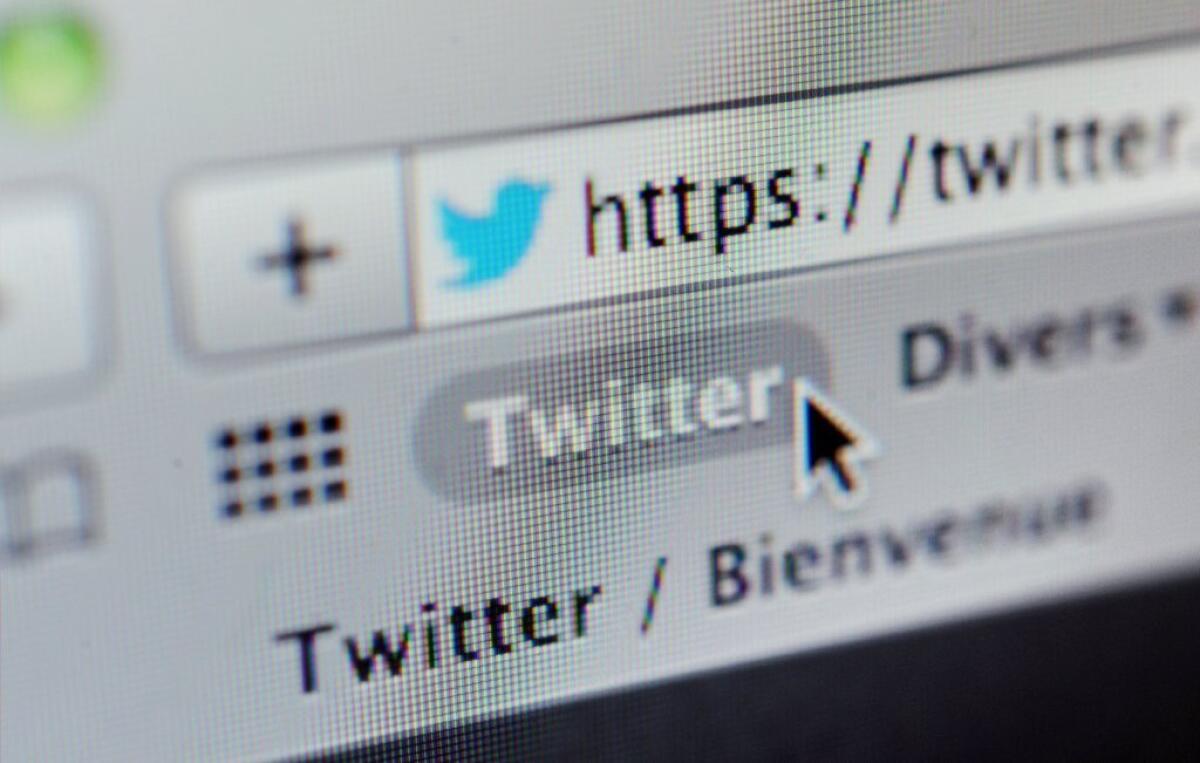Government requests for Twitter user data rise 20% in 2012

- Share via
The (relatively) old joke among lawyers is that the “e” in email stands for “evidence,” since emails had the unfriendly tendency to reappear in court; so you might say that the “t” in Twitter stands for “transparent,” in that both you and the police can see right through the online microblogging service.
American law enforcement requests for Twitter user data increased 20% in the second half of 2012 compared to the first half of the year, according to the service’s biannual transparency report, which was released Monday as the part of the company’s ongoing openness efforts.
Eighty-one percent of those requests came without a search warrant, the service reported, with the majority of all requests -- 60% -- coming in the form of subpoenas that usually do not require a judge’s permission for investigators to request basic user data not available to other tweeters, such as email addresses and IP logs.
According to the latest Twitter report for 2012, the company handed over information to law enforcement in 69% of their requests.
While part of Twitter’s appeal has rested in the spartan, 140-character nature of the service, the company keeps complex “log” data on its users’ behavior, which can reveal the websites they browse.
The rise of social media use has created an echo effect among members of law enforcement in the United States, who have engineered a corresponding boom in electronic investigative tactics.
More than finding crooks dumb enough to write Facebook posts about robbing houses, investigators have the ability to interpret reams of complex user data to reveal what suspects didn’t mean to show: where someone used a cellphone, or whether they were searching Google for how to kill someone.
One U.S. Department of Justice report noted that investigators can get data from Facebook that shows what links a user’s cursor has hovered over.
Civil-rights advocates and Web activists, however, have raised concerns about whether police are staying inside U.S. constitutional boundaries intended to protect citizens from unreasonable searches: What used to happen inside the home now also exists as data and code held on faraway servers by corporations who can quietly hand over information. The Electronic Freedom Foundation has called it “privatized state surveillance.”
Such subpoena requests from Twitter have included a 2011 attempt by the U.S. Department of Justice to get user information for an Icelandic lawmaker without notifying her; the lawmaker, Birgitta Jonsdottir, who was tied to WikiLeaks, learned about the request only when informed by Twitter, a San Francisco-based corporation.
Christopher Soghoian, a top technology expert for the American Civil Liberties Union, hailed Twitter on Monday (on Twitter) as a “transparency leader” for providing statistics about law enforcement requests. Facebook, for example, does not provide a similar report.
Ubiquitous search giant Google released a transparency report last week, which showed a greater than 200% increase in law enforcement requests for data since 2009; again, most of the requests -- 78% -- came without warrants.
In a Monday blog post, Google noted the arrival of “Data Privacy Day” with the observation that the day wasn’t likely to be very private at all.
“If it’s like most other days, Google -- like many companies that provide online services to users -- will receive dozens of letters, faxes and emails from government agencies and courts around the world requesting access to our users’ private account information,” the post wrote.
Twitter, in its transparency report, concluded, “All signs suggest that these government inquiries will continue to climb into the foreseeable future.”
ALSO:
Secret Service dog plunges to its death in New Orleans
Las Vegas house fire hits too close to home for firefighter
Casey Anthony files for bankruptcy, nearly $800,000 in debt
More to Read
Sign up for Essential California
The most important California stories and recommendations in your inbox every morning.
You may occasionally receive promotional content from the Los Angeles Times.











